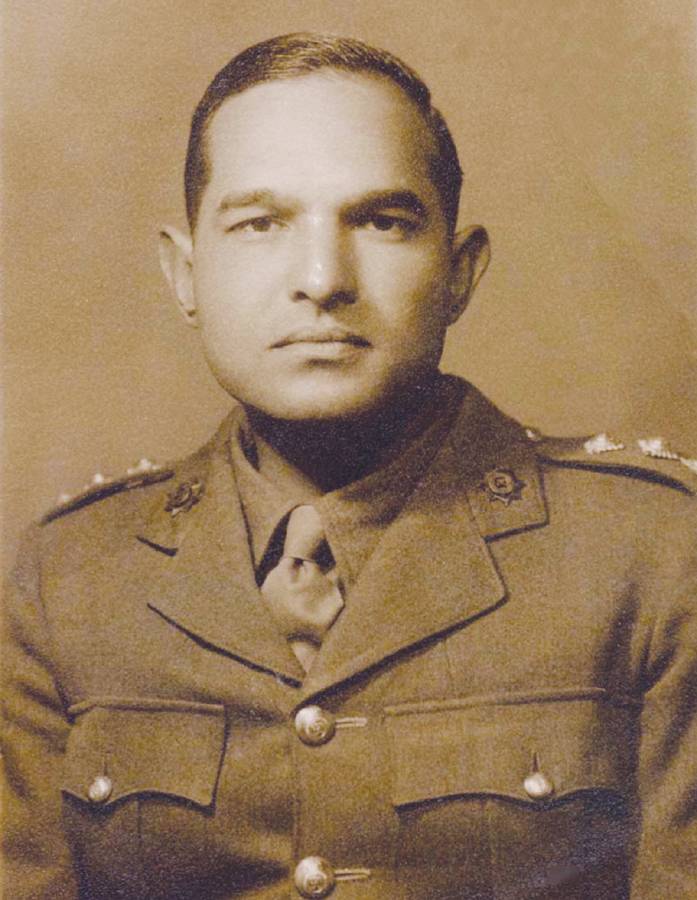LAHORE - Colonel (r) Amjad Hussain Sayed, a renowned worker of the Pakistan Movement, died here on Monday at the age of 97.
The distinguished army officer was decorated with a gold medal for his role in the Pakistan Movement. He was also a personal friend of the late Majid Nizami.
Col Amjad was the father of PML-Q Secretary General Senator Mushahid Hussain Sayed, Mujahid Hussain Syed (Director, Legal - Nawa-i-Waqt Group), Mowahid Hussain Sayed (former special assistant to the Punjab chief minister) and Tehsin Sayed (Country Director World Bank).
His funeral prayers will be held at his residence, 111-C New Muslim Town, today (Wednesday) at 2pm. The deceased will be laid to rest at his ancestral graveyard in Shah Jamal, Lahore.
Colonel Amjad Hussain, a member of the last corps of the Pakistan freedom struggle icons, was born to a distinguished Sayed family from Lahore, which founded Muslim Town, a residential colony adjacent to Model Town, 90 years ago.
He was a student leader in Islamia College of Lahore, which was then the hub of Muslim nationhood. He was a frequent visitor to Sir Allama Iqbal at his Lahore residence and during that period also met Quaid-e-Azam.
In 1937, he was sent by Allama Iqbal to the historic 1937 Session of the Muslim League at Lucknow, where the Muslim League was reorganised and Quaid-e-Azam for the first time wore his achkan and Jinnah cap. This 1937 session served as a launching pad for the Pakistan Movement.
Col Amjad also participated in the March 1940 Muslim League Session at Lahore, where the Pakistan Resolution was passed. He was accompanied then by his nephew Khalid Hussain, who made the sole video recording of that watershed event.
Commissioned as a lieutenant in the Army in January 1942, Amjad Hussain served in the Middle East during World War II. In 1956, he was selected for a military course at Maidstone, England, where he attained distinction.
In 1957, he was dispatched by General Ayub Khan, the Commander in Chief of Pakistan Army, as Defence Attaché to Jakarta, Indonesia, where India under Prime Minister Pandit Nehru had considerable influence after the Bandun Conference of 1955.
Through his sterling efforts, which energised and inspired Pakistan-Indonesian ties, Indonesia’s President Sukarno decorated Col Amjad in 1963 with the Bintang Dharma (Star of Merit) – Indonesia’s highest medal bestowed for most distinguished service in the military.
The award citation noted he “extensively travelled in Indonesia for the purpose of fostering good relations” between Pakistan and Indonesia, “creating an everlasting impression... with the result that Indonesians consider him to be one of them”, and concluded that Col Amjad “as a diplomat has blazed a trail of light which will long serve as a beacon to those who are given to the task of promoting the cause of peace and friendship.”
The results of Col Amjad’s strivings were readily transparent during the Indo-Pak War of September 1965, when Sukarno stood like the Rock of Gibraltar behind Pakistan.
Amjad’s military assignments included being Commandant of ASC Officers’ School at Jhelum and Commanding Officer at Dacca from 1964-67. He was recalled to the Army during the 1971 War.
In August 1997, he was awarded the Gold Medal for his services and sacrifices during the Pakistan Movement by the Prime Minister of Pakistan, during the Golden Jubilee Year marking Pakistan’s creation.
Colonel Amjad Hussain was recognised as an icon of the Pakistan freedom struggle and had been a frequent speaker on public forums, radio, and TV, at milestone events marking special phases of the Pakistan Movement.
Through his life, Col Amjad was known for his uprightness, courage of convictions, and austere living. He was the source of inspiration for many youth for his simple living, strong faith in Pakistan, and dauntless commitment for the ideals of the Quaid and Iqbal.
The deceased was widely honoured and was regarded as a figure of inspiration owing to notable integrity, daring, and moral uprightness. He warned the youth to shun materialism, which he saw as the bane of society and at the core of many of the socio-cultural problems.






